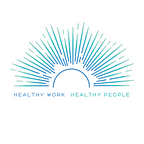Dr. Peter Schnall — Executive Producer
WOE is a transmedia project on declining American worker health, poor work-life culture, and the laws, policies, and workplace practices that perpetuate these conditions.
___________________________________________________________________
My interest in the causes of hypertension began while practicing medicine for 8 years at the Martin Luther King Health Center (MLKHC) located in the South Bronx. I became aware of a possible role for environmental factors in the causes of “essential hypertension.” I first noticed — as a practitioner and Co-Director of the Hypertension Surveillance Program at the MLKHC — that many patients diagnosed with hypertension showed remission of their high blood pressure while off of medication. This finding contradicted the established medical conceptualization of hypertension as a chronic disease and, therefore, considered irreversible. I could no longer see the realities of the diverse population I served at MLKHC and not do something more.
Thus, I decided to go back to school and further pursue my interests in the causes of hypertension. In 1981, I applied for and received a three-year National Institute of Health, National Heart, Lung & Blood Institute (NIH NHLBI) postdoctoral fellowship for training in cardiovascular epidemiology at Columbia University School of Public Health. My doctoral thesis project proposal–to study the impact of work stress on ambulatory blood pressure (ABP)–was submitted in collaboration with Dr. Tom Pickering at Cornell Medical Center in 1984 to the NIH NHLBI, and was subsequently funded for 14 years (the longest ever longitudinal study of work stress and ABP). Our research carried out at Cornell established that there existed a strong relationship between exposure to job strain (jobs high in demands and workers with low control over work duties, schedules, workflow, etc.) and ABP — particularly, though not limited to, work-time blood pressure.
My research combined with that of many colleagues has led to two major book publications, The Workplace and Cardiovascular Disease (Hanley and Belfus, 2000), which is still the standard text in the field, and most recently Unhealthy Work: Causes, Consequences, Cures (Baywood Publishing, 2009). Unhealthy Work summarizes the impact of working conditions on mental, as well as physical health. These books and many articles have contributed to the clear, worldwide consensus among researchers that work factors including work stress are playing an important role in the development of hypertension, as well as causing heart attacks.
To change the way work is organized to prevent unhealthy work stressors that lead to hypertension, the public needs substantially more education. And given all of my and my colleagues’ research findings, I feel a responsibility to take on the heavy task of educating the public about the role of work organization and work stressors in the causes of hypertension. And by the public, I mean to include not only average working men and women, but also managers and executives of businesses, medical professionals and public servants.
“Change does not roll in on the wheels of inevitability, but comes through continuous struggle. And so we must straighten our backs and work for our freedom. A man can’t ride you unless your back is bent.” — Martin Luther King, Jr.
I recently embarked on the development of a film project currently titled Working on Empty. I have always loved film. In fact, I have been a sci-fi film lover for decades. But I never thought that my journey as an academic would lead me to using the film medium — which I have always loved as a spectator to create a multimedia project — not for the love of the medium, but for the people I’ve dedicated my life to serve and take care of — first as a medical practitioner, then as a researcher and professor, and now hopefully with greater impact as a media producer.
With the limited resources of the Center for Social Epidemiology, we have begun by creating a website, writing articles, releasing short videos, and a documentary Working on Empty outlining unhealthy work culture, policy, and laws. Along with a companion book, each of these resources will be devoted to the education of the public as to what constitutes healthy work. Further, my goal is to change the structures and system of workplace health, employment policy, and culture around a healthy workplace for all regardless of socio-economics, gender, or political power. In fact, I’d like to make healthy work and workers a national priority in America. But to that end, my team and I can’t do this alone. We need your help. We need you.
To support the WOE movement:
- Share this Medium post with a friend or a colleague.
- Connect with us on Facebook & Twitter.
- Visit our website: workingonempty.org. (coming soon)
- E-mail us directly: WorkingonEmptyDoc@gmail.com
With your help, we will have created more than hope — we’ll have cemented lasting, positive change in the name of healthy working conditions.
___________________________________________________________________
Dr. Peter Schnall MD, MPH, is a Clinical Professor of Medicine at University of California, Irvine’s Center for Occupational and Environmental Medicine (COEH), as well as the Director of the Center for Social Epidemiology (CSE). He also annually teaches a course titled “Work and Health” to graduate students and health practitioners at the UCLA School of Public Health.
Peter is a recognized expert and active researcher on the role of occupational stress in causing hypertension and cardiovascular disease (CVD), and has a long-standing interest in the role that work organizations and psychosocial stressors play in the development of obesity, hypertension and other CVD risk factors. He is a member of two committees of the International Commission on Occupational Health (ICOH). He has authored two books (see above). And he is now also the Executive Producer of the website, crowdfunding campaign and in-progress feature documentary titled Working on Empty. (LinkedIn, Twitter)
